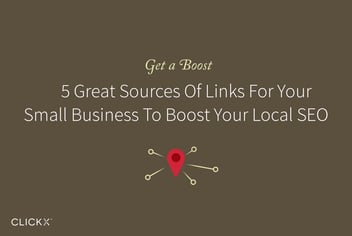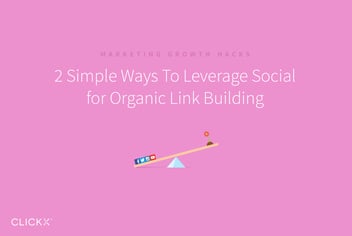How to Leverage Offline Relationships to Build Quality Links
Earning quality backlinks is a powerful way to boost your business’ search engine rankings. However, earning these links is often easier said than done! If you don’t have a strategy in place, it is unlikely anyone will find and link back to your site.
The good news is, ethical and quality link building is a natural extension of good offline business practices. They both stem from authentic relationships with clients and industry leaders. Once you’ve formed these genuine connections, these people are often happy to link back to your site.
In this article, we will explore how you can develop your network in meaningful ways. Then, we’ll reveal three guidelines you should always follow when asking for backlinks.
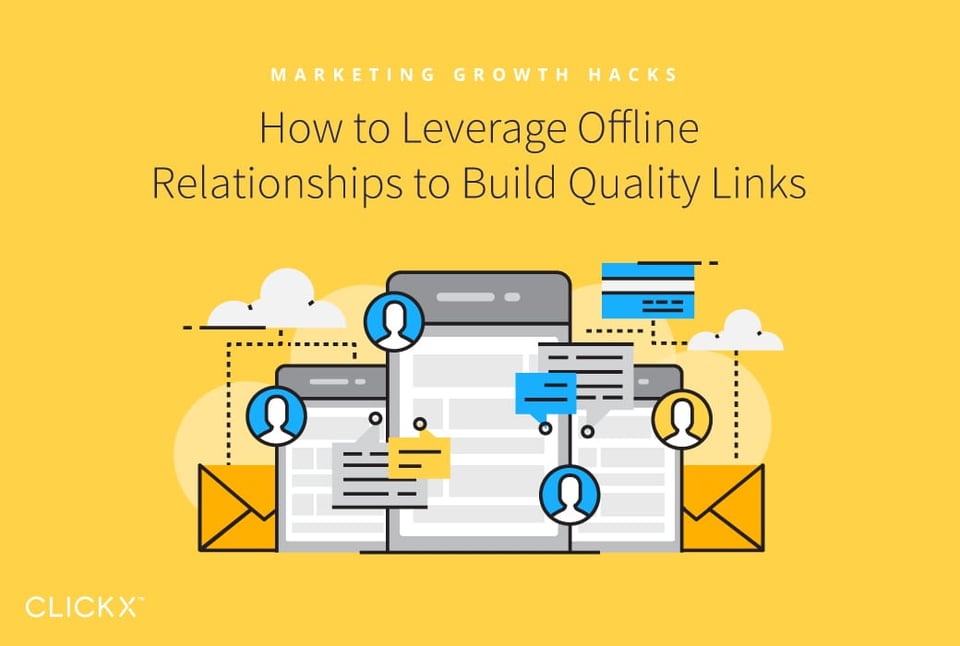
Key Takeaways
- Offline relationships are good for business in general, but can also help you earn backlinks.
- You can begin growing your network using your existing contacts.
- Backlink requests should always offer value to person they’re directed to.
How to Develop Your Offline Network
Even when they start online, offline relationships help you build a strong community of people who believe in you and your business. Much like content marketing, relationship building is a long game—but the rewards can be substantial! Among other benefits, when the time is right, you can ask people in your network to link back to your site via their own content.
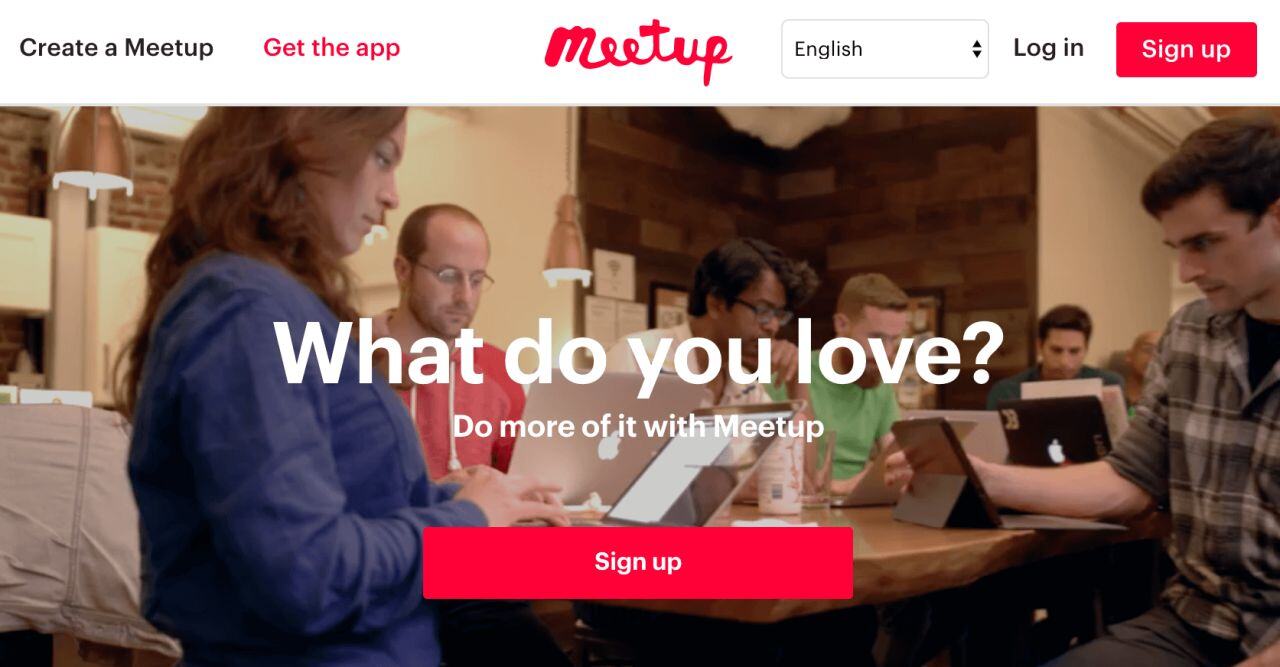
Meetup is a great place to network and find like-minded people.
[Tweet “Offline relationships help build a strong community around you and your business.”]
Networking is critical for any business, but it takes a lot of practice. However, it’s worth the effort: 95% say face-to-face meetings are essential for long-term business relationships. That’s pretty close to a consensus on the impact of networking.
Here are a few tips to get you started:
- Strengthen your existing network. Identify your most prominent clients, get to know them better, and figure out how you can provide them with more value. Also, reach out to any industry leaders you are already connected with and find out if you can help them in any way.
- Grow your network. Try to create genuine relationships with people outside your existing network who share similar interests and goals. You can find relevant meet-ups and conferences in your area via sites like Craigslist or Meetup.
- Create a hub with you at the center. Consider forming a hub, such as a Meetup or Facebook group of your own, where everyone can connect and help each other. Remember, this isn’t just about backlink building—it’s valuable for business relationships too!
Always remember that these connections shouldn’t be centered around your desire for backlinks. By focusing on genuine relationships first and backlinks later, the next steps should come more easily.
3 Guidelines for Requesting Backlinks Within Your Network
Now that you’re equipped to grow your offline network with authentic relationships, let’s delve into how you can leverage those relationships in terms of links.
If most of your correspondence with people in your network involves asking for favors, you will quickly find yourself isolated. Nobody wants to hang out with the personified version of an annoying popup. First, offer value! This way, you are already in good standing when the time comes to request a backlink.
[Tweet “Spamming people with irrelevant backlink requests will quickly leave you isolated.”]
The key here is discretion and authenticity. Here are a few guidelines to follow:
1. Only Ask for Relevant Backlinks
Backlinks are tricky. If you do it wrong and make it look like you’re part of some nefarious link scheme, Google will penalize you. You can avoid this by only asking for backlinks that make sense in context.

Spamming websites with backlinks is an example of irrelevant link scheming.
Of course, it’s not all about Google. When you ask for backlinks that don’t make sense, your network will lose trust in you. By reaching out without any discernment, you risk losing both your contact and the potential for a decent backlink one day.
Instead, make sure every request makes sense to both you and the person you are asking.
2. Don’t Send Bulk Requests
Quality backlinks largely stem from your ability to ask for the right link, from the right person, at the right time. In other words, don’t send out the exact same message to multiple people.
This is called a bulk request, and it paints you in a bad light. These types of requests are a big no-no if you want to get positive responses and maintain your reputation. Nobody wants to feel like just another anonymous name on your contact sheet.
Instead, send personalized requests that make it clear you understand when, where, and how this link will benefit their audience. Focus on their needs first!
3. Make Your Request Clear and Actionable
People don’t want to do extra work. The reasoning behind this this is summed up in the book titled “Don’t Make Me Think”. The fact is, people are busy and have limited time, patience, and energy.
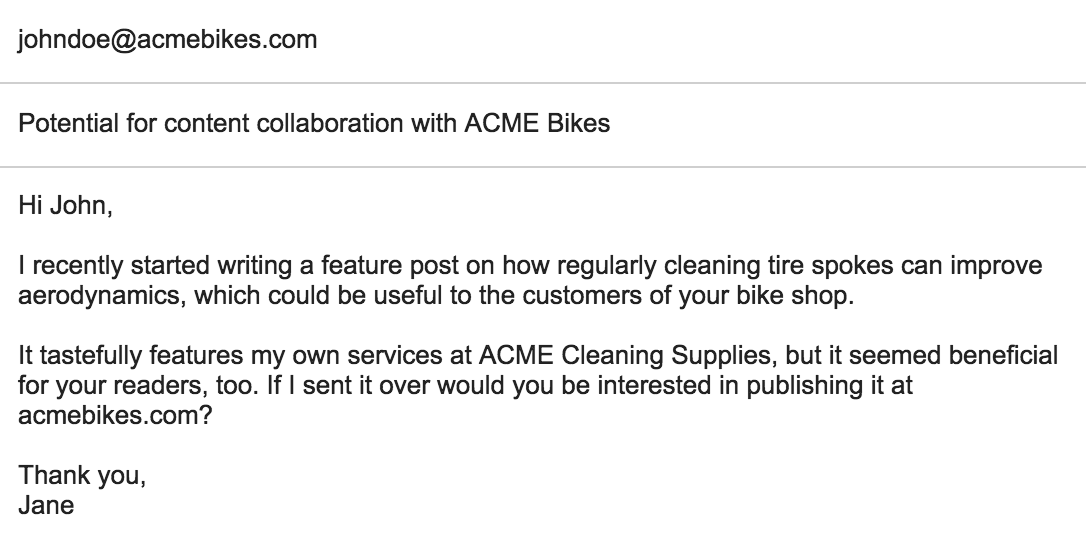
An example of a short, relevant backlink request via guest post.
Any favor you ask of somebody should be respectful of the time they will have to devote to evaluating it and carrying it out. You can make things easier for them by clarifying exactly what you’d like them to do. Of course, leave options open for discussion (don’t go bossing them around!), but keep the pitch simple and straightforward.
The best way to describe how to go about making a clear and actionable request is to provide another example. If you notice a contact has a resource page and your business might benefit their readers, you could make a request like this:
“I noticed you have a resource page for your readers at <link>. As my business offers <benefit> for <their audience>, would it be too much trouble to add us on that list? Our link is <business link>.”
It’s to the point and highlights the fact that taking action will provide value to their readers.
Conclusion
Offline relationships can be a valuable source of consistent, quality backlinks from relevant sites. If you work on developing your network and becoming a trusted resource, people will likely link back to your site naturally and will also be open to specific linking requests.
In this post, we offered tips for developing your offline network and revealed three guidelines to follow when requesting links. Let’s recap those guidelines quickly:
- Only ask for relevant backlinks.
- Don’t send bulk requests.
- Make your request clear and actionable.
What questions do you have about leveraging offline relationships to earn quality backlinks? Let us know in the comments section below!

